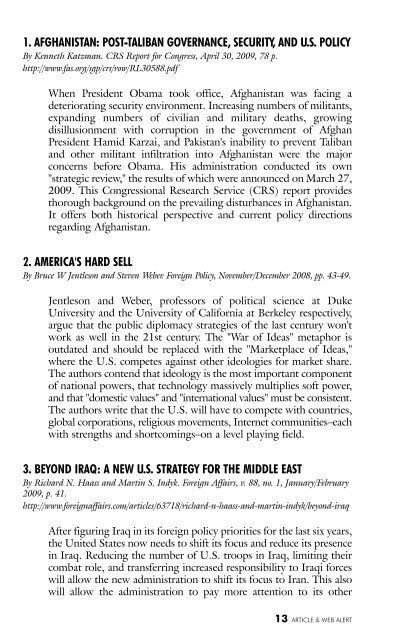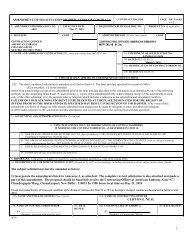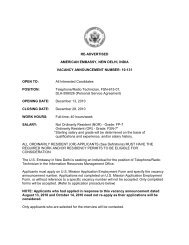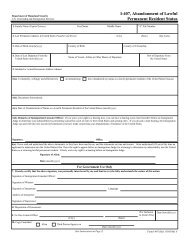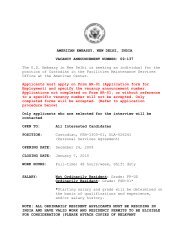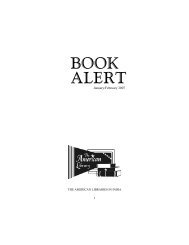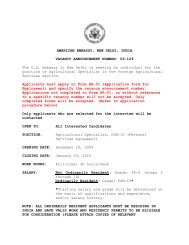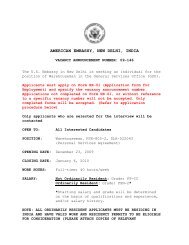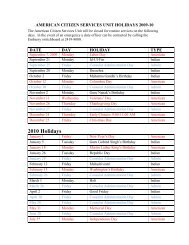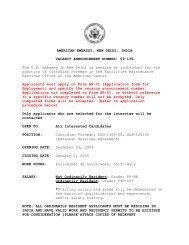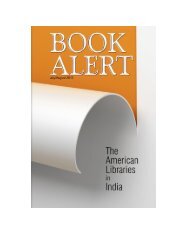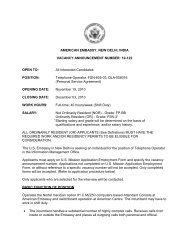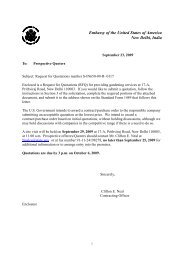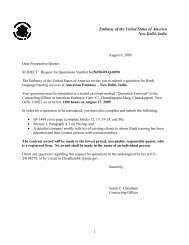Article & Web Alert (May/June 2009) - New Delhi
Article & Web Alert (May/June 2009) - New Delhi
Article & Web Alert (May/June 2009) - New Delhi
Create successful ePaper yourself
Turn your PDF publications into a flip-book with our unique Google optimized e-Paper software.
1. AFGHANISTAN: POST-TALIBAN GOVERNANCE, SECURITY, AND U.S. POLICYBy Kenneth Katzman. CRS Report for Congress, April 30, 2009, 78 p.http://www.fas.org/sgp/crs/row/RL30588.pdfWhen President Obama took office, Afghanistan was facing adeteriorating security environment. Increasing numbers of militants,expanding numbers of civilian and military deaths, growingdisillusionment with corruption in the government of AfghanPresident Hamid Karzai, and Pakistan's inability to prevent Talibanand other militant infiltration into Afghanistan were the majorconcerns before Obama. His administration conducted its own"strategic review," the results of which were announced on March 27,2009. This Congressional Research Service (CRS) report providesthorough background on the prevailing disturbances in Afghanistan.It offers both historical perspective and current policy directionsregarding Afghanistan.2. AMERICA'S HARD SELLBy Bruce W Jentleson and Steven <strong>Web</strong>er. Foreign Policy, November/December 2008, pp. 43-49.Jentleson and <strong>Web</strong>er, professors of political science at DukeUniversity and the University of California at Berkeley respectively,argue that the public diplomacy strategies of the last century won'twork as well in the 21st century. The "War of Ideas" metaphor isoutdated and should be replaced with the "Marketplace of Ideas,"where the U.S. competes against other ideologies for market share.The authors contend that ideology is the most important componentof national powers, that technology massively multiplies soft power,and that "domestic values" and "international values" must be consistent.The authors write that the U.S. will have to compete with countries,global corporations, religious movements, Internet communities–eachwith strengths and shortcomings–on a level playing field.3. BEYOND IRAQ: A NEW U.S. STRATEGY FOR THE MIDDLE EASTBy Richard N. Haass and Martin S. Indyk. Foreign Affairs, v. 88, no. 1, January/February2009, p. 41.http://www.foreignaffairs.com/articles/63718/richard-n-haass-and-martin-indyk/beyond-iraqAfter figuring Iraq in its foreign policy priorities for the last six years,the United States now needs to shift its focus and reduce its presencein Iraq. Reducing the number of U.S. troops in Iraq, limiting theircombat role, and transferring increased responsibility to Iraqi forceswill allow the new administration to shift its focus to Iran. This alsowill allow the administration to pay more attention to its other13 ARTICLE & WEB ALERT


